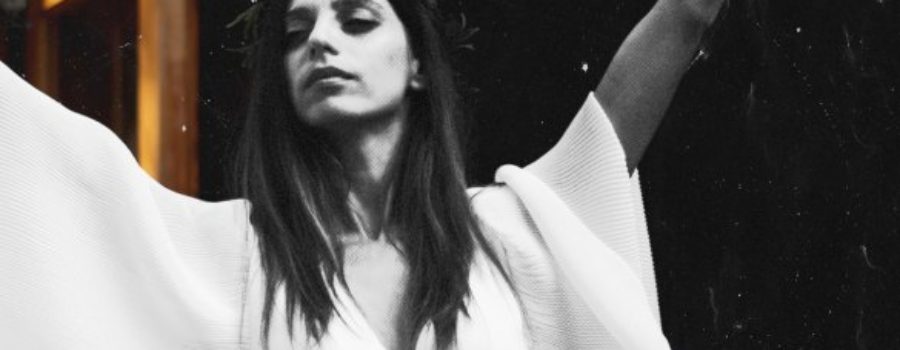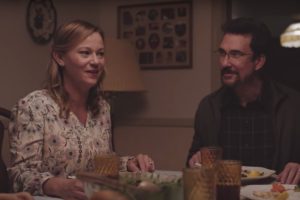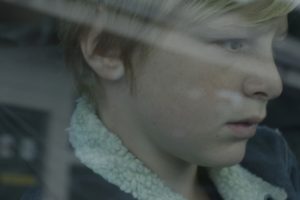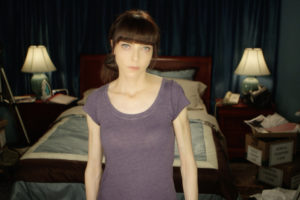[Published at Living Life Fearless] One of the most prolific and influential Armenian actors working today, Angela Sarafyan moved to Los Angeles at the age of four from Yerevan, Armenia, when it belonged to the Soviet Union. Studying ballet and piano as a child, Sarafyan developed an affinity for the creative at an early age, sticking with her into adulthood, when she first utilized her talent for movement in Britney Spears’ “Stronger” music video. Sarafyan seamlessly transitioned into acting, appearing in a series of television shows such as Buffy the Vampire Slayer, The Shield, 24, CSI: NY, and American Horror Story, and films such as The Informers, A Good Old Fashioned Orgy, The Twilight Saga: Breaking Dawn – Part 2, Lost & Found in Armenia, and 1915.
Her big breaks, however, would come in 2016, when she starred in The Promise, the first film to ever depict the Armenian Genocide, and HBO’s Westworld. Ever since, the household name has turned heads with her dramatic acting prowess.
Sarafyan’s latest film is King Knight, a comedy about a high priest of a coven of witches (Matthew Gray Gubler), whose past comes back to haunt him as several members of his coven, including actors Andy Milonakis, Emily Chang, Nelson Franklin, and Johnny Pemberton, turn on him, prompting a soul-searching journey of identity in an increasingly judgmental world, aided by his wife, the high priestess (Sarafyan).
Ahead of King Knight‘s release, I spoke with Sarafyan about its unique script, shifting to comedy, the film’s universal messages, her work in Armenian films such as Lost & Found in Armenia, 1915, and The Promise, returning to her dancing roots in the latter, Armenian representation in the film and TV industry, the collective trauma Armenians endure from the Armenian Genocide and the First and Second Artsakh Wars, whether she’s Team Edward or Team Jacob, her upcoming films, and more.

King Knight is a hilarious and touching film. What drew you to the script?
I have been working on a lot of dramatic films for a while now. I’ve done comedies in the past. But when I read the script, it was just so quirky in the way the writing and the humor and the things that were being said and the way they were said, and I was really drawn to it. And I found it to be really funny. And I thought, at the heart of it, was a movie really about self-discovery. And it had absurdist qualities and a pretty important message. And the space to move people. And I love that about the film. That was the thing that attracted me. And I knew when reading the first few pages that this is something that I’m into. So the turnaround for it was really quick. But regardless of it, it was such a wonderful experience. Sometimes when you get cast late, you don’t have time to make decisions before you get to set. But in this process, I really trusted Ricky, the director, and Matthew, my husband in the movie. And it was such a lovely, lovely experience. It all flowed easily.
It certainly translated to the screen. And the film really delves into the satanic panic phenomenon in film from the 1980s, but with a more comedic, optimistic, and relatable spin.
Having humor about life is such an important thing. We can be so dramatic all the time that we forget to laugh. We to forget to just go. “Okay. Well, this is life. This is what we’ve been dealt.” And it’s good to be able to laugh.
I agree. What is your character, Willow, primarily motivated by throughout King Knight?
Her motivation is the unity of her relationship with her husband and what she strongly believes in. And if you’re in a relationship, and that person brings out the best in you and they encourage you to look at things that maybe are the hardest to talk about, the hardest to look at – that’s what happens with Willow and Thorn in the most absurd, over-the-top, silly ways. But at the heart of it, that’s what it is. And when you’re in that kind of relationship, that person will support you no matter how difficult the consequences or circumstances might be. So we don’t want labels to identify who we are. And, normally, witches tend to be looked at as something negative within the story. They really are beautiful beings who celebrate nature, and they celebrate life, and they celebrate the good. And I love that because in life we have these labels that we identify with, and we go, “This is good. This is bad. This is right. This is wrong.” In this case, it’s saying maybe those labels aren’t things we need to trust. Actually, maybe those labels are misguided. So it has all kinds of metaphorical, philosophical ideas in it, but done with humor; done with this farcical nature. Yeah. That got kind of deep.
No, that’s great! And the relatable jobs that each character has, and the idea that they all had had a past before this, really demystifies the essence of cult. Was that something that Richard talked to you about when discussing this?
Yeah. We talked about a lot of things. That element is very important. Even towards the end when he goes back to the reunion and he meets the guy at the front door, and how they’ve kind of switched roles – he had become this preppy guy, and Thorn had become this witch, whereas he used to wear Abercrombie jeans and the shirt, and he was class president and prom king. And so it’s interesting to let go of these labels completely. Did you ever see Soul, that animated film on Disney?
Yeah, I did.
That’s the same thing, I feel like. There’s a similar theme, which is we are not what we do. We are greater than those things. Because in Soul, they talk about what is the purpose of your life, right? And a lot of the time we think the purpose of our life is what we do for a living. So for him, it was to be a jazz pianist. And the purpose is much greater than that. And in a way, that’s what this film is also talking about. So by the end, when they have a baby, she says, “We’ll support him in whatever he chooses to do, even sports.” [laughter]
That was hilarious. You mentioned you had done a lot of dramas. And in this one, you work with some great comedic actors. What was it like working with Matthew Gray Gubler, Andy Milonakis, who’s somewhat of a legend, and Aubrey Plaza, even though she just had a voiceover role?
Well, I didn’t meet Aubrey. But with Andy and Matthew, it was just so much fun. Andy’s the sweetest, kindest, loveliest human being. And Matthew is the perfect storm. He’s just such a delight. We completed each other as a couple, and as Willow and Thorn, perfectly. It was very, very, very fun. And he made me laugh all the time. And everybody else, like Josh Fadem and Johnny Pemberton and Kate Comer and Emily Chang and everybody that was involved, Nelson (Franklin), were just lovely, wonderful human beings as well as great, great talents in comedy. Great actors. So that was a lot of fun.

Speaking of comedic actors, I interviewed Jamie Kennedy, who spoke so dearly about his experience on Lost & Found in Armenia.
Oh, that’s nice.
I found it to be a beautiful film that touched upon generational trauma, not only from the Armenian Genocide, but also from the First Artsakh War. What was the experience like going back to Armenia and filming on location?
I hadn’t been back since I was born. So when I went back, it was just constant surprise full of heart and stories and pictures and memories – being bombarded by all that, recognizing things and people that I’ve never met. For example, we were shooting in a lot of villages, and there was this very lovely grandma in one of the villages, and she reminded me of my own grandmother, which was so amazing to see some of that, how our genes and how our environment can color the behaviors and actions in the way that we exist in the world. And so I would see that reality, that duality. And the thing that felt closest to my heart was nature. You could see these beautiful fields of flowers, these horses, the grape vines, and the villagers were all incredible. You could milk a cow and get bread. And it was so funny, too. The movie is so funny. So we had our crew and everybody there. But David Tovmasyan who’s playing the village guy, was so funny. I had so much fun working with him.
That’s amazing. It sounds like a lot of sensory feeling coming back.
Yeah, it was. It was.
I interviewed Eric Esrailian, Serj Tankian, and Terry George for a piece I did for Armenian Genocide Remembrance Day earlier this year, and it was really insightful to discuss Intent to Destroy and The Promise. The Promise is powerful in so many ways. What was it like working through some of the tougher scenes with Terry, who’s not unfamiliar with this subject matter?
Terry was a very sensitive director. He would say one thing that would change the way that an entire scene could go. But he also had patience and made space. And Oscar Isaac, because my stuff is mostly with Oscar Isaac in The Promise, really set this environment to honor the actors that were on set and our process. So everybody worked around the actors. And Terry had given us that room, as well, to do that. I loved it because they played tricks on me. There’s a scene where I go and he’s returned from Constantinople – what it’s called then – and he’s in bed, and I approach the bed and touch a pillow, and then he scares me. He did that on purpose. I love trickster things. And Terry was in on the joke.
It was a very touching and moving experience for me, obviously, for the reasons that are so close to me.
I could imagine. I have relatives, too, who were, unfortunately, victims of the Genocide. For every Armenian, it brings up painful memories, but The Promise honored those memories in such a respectful way.
Thank you.

ERIC ESRAILIAN
Was Eric on set a lot? Is he a hands-on producer?
Oh, yeah. He was. Well, when I was there, he was. And we had this very lovely choreographer from Spain who was going to design the dance. But I felt like the dance wasn’t very Armenian. He had an idea of what Armenian is, but he was creating a dance that didn’t look Armenian in any way. And I’ve had some experience dancing on stage as well, and also, Armenian traditional dances, too. So Eric was there, and he was so supportive because I said, “I really think that what he’s choreographing is something that isn’t Armenian.” And his wife, Melina, was there as well. And so we all agreed that we needed to change this. And his support and his presence on set was so essential because there aren’t that many Armenians around as a point of reference. So it was wonderful having him there. And I got to dance with his boys who were so little at the time, and now they’re grown up, they’re adults. It’s crazy! I just can’t believe it. So I’m happy that they caught that moment in time on camera.
That’s beautiful. And that’s key that he helped, and that you were able to incorporate your voice into the film and change the dance. I think the dance was such an important part of the film.
Yeah, me too. Me too. And really bringing the Armenianness to that film is something else; to bring that authenticity is so important. And so I’ve done so much research about the time and what Old Armenia used to be, how people that lived in villages lived, how you stored your cheese in order for it to not go bad for a long time, how you survived, what was the lifestyle, what was the world, really learning and educating myself about being an Armenian then versus now, the music and how that colored the world, the sensibility, what did marriage mean, all of these things. And I kept finding myself in tears and so moved by recreating all of that in this tiny village in Spain called Albarracín. It had that pink rock, that very characteristic quality; the buildings in Armenia have that pink tone. It was incredible.
And Armenians, in general, are really underrepresented in film and TV, so it’s always great to see our culture on screen.
Hopefully, that changes. And I think it is.
Yeah, it is. Whereas The Promise depicts the actual events of the Armenian Genocide, 1915 recreates them on stage while confronting the historical censorship, protests, and misinformation that we often encounter with the Armenian Genocide in film and history, similar to Atom Egoyan’s Ararat. How does reenacting our collective trauma on stage in that film compare to acting in a historically accurate depiction in The Promise?
Working with Simon Abkarian on that film – I really, really admire his work, and Garin (Hovannisian) and Alec (Mouhibian) – was a very different experience because now we’re going into your imagination of recreating very traumatic moments that we’ve heard stories about since we were kids. I’m sure your ancestors also have stories about how they survived. But my great-great-grandparents have stories. And I know if you’re in that moment in making a decision, what do you do, what can you do, and it was a really controversial debate, because the film 1915 really explores that moment where Angela has to make a decision that she has to go with the soldier or die. She’s pregnant also. And so to think about all of the things that our ancestors had to go through. All these amazing moments were coming up, and my mom and grandma were around and I was really looking at them and going, “I’m playing this Armenian woman who has dignity, who has strength, who has power, who has a family, who has all of these qualities, and am I bringing her justice in this moment if I follow the soldier out? Do I stay?” These are the kinds of questions. And audience members tend to have real strong reactions, especially Armenians, about, “An Armenia would never do that.” And the truth is, at times they have. Some were raped by Turks. Some were taken away by Turks. And they had to go and have a child with a Turk, or whatever the case might be. And it’s a difficult conversation to have. It’s a difficult subject to look at.
It’s not black and white like you would want it to be or think it may be. There’s a lot of gray area.
A lot of gray area. And also the stuff that’s been happening in Armenia this past year has been so disheartening and incredibly sad, and Artsakh, and with us in diaspora watching helplessly, trying to help, figuring it out. I go, “How amazing is it that America can recognize that there was an Armenian Genocide? How incredible is that?” That is history in the making. I mean, it was amazing. I’m so grateful. Clearly it could be colored by many things, but the mere fact that it happened, I didn’t know if we would see that.
Yeah, I didn’t know we would see that in our lifetimes. It brought tears to my eyes. And then the passing of the Pallone Amendment, with the help of the ANCA, which cuts military aid to Azerbaijan, is a huge step, too.
Yeah, yeah, yeah.
With Netflix recently adding the entire Twilight series last month, it’s reignited fans’ and new viewers’ interest in the series. And you were in Breaking Dawn – Part 2 as Tia. So is it cool to see old projects grow new legs?
I didn’t even know until you told me. Breaking Dawn is on Netflix?
Yeah, they they put the whole series on Netflix. And now the Edward and Jacob debate is back, believe it or not.
It’s back? Really?
Yeah. Social media has been having fun with it.
Oh, that’s so funny. That’s great.
Were you Team Edward or were you a Team Jacob?
Always Team Edward, of course. Is that crazy?
No, not at all.
I think that’s because I’m a fellow vampire.
That makes total sense. Are there any future projects that have you particularly excited?
Yeah. So a film I did called Reminiscence is going to come out very soon. August 17th is the premiere, so the film will be out in theaters August 20th as well. This movie, of course. I have two other films that are meant to come out. One at the end of the year, a film called A House on the Bayou. And then The Ray, which I’m assuming will come out the following year.
Reminiscence is directed by Lisa Joy, who co-created Westworld.
Yes. She’s one of the creators of Westworld, so this is her first feature film.
And are you going to make an appearance for season four of Westworld? Is the old Clementine coming back?
King Knight will have its World Premiere at Fantasia Film Festival on August 8.








Leave a Reply
Your email is safe with us.